The Agricultural Development Agency Reviews the Results of the Model Project for Productive Partnerships in the Agricultural Sector
As part of the Agricultural and Agri-Food Value Chain Development Program, the Agricultural Development Agency organized a workshop on Friday, February 28, in Rabat to present the results of the model project for productive partnerships, funded by the World Bank. This ambitious project aims to strengthen agricultural aggregation and develop innovative models for organizing producers, combining economic and social dimensions to ensure a sustainable dynamic for the sector.
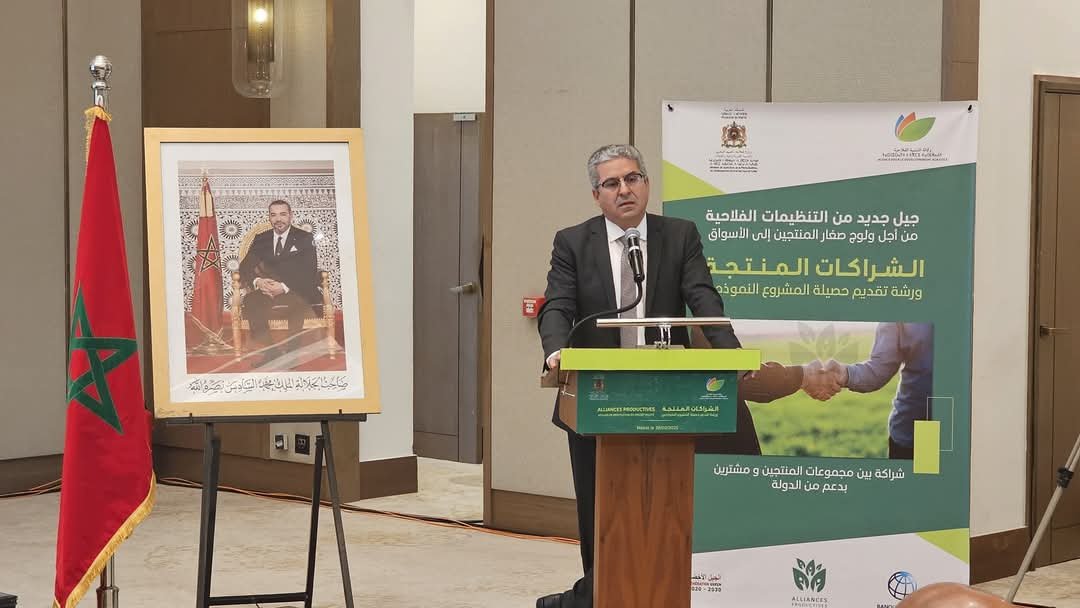
This initiative is at the heart of the “Green Generation 2020-2030” strategy, overseen by the Ministry of Agriculture, Maritime Fisheries, Rural Development, and Water and Forests, with the goal of modernizing and sustaining the agricultural fabric while enhancing its competitiveness.
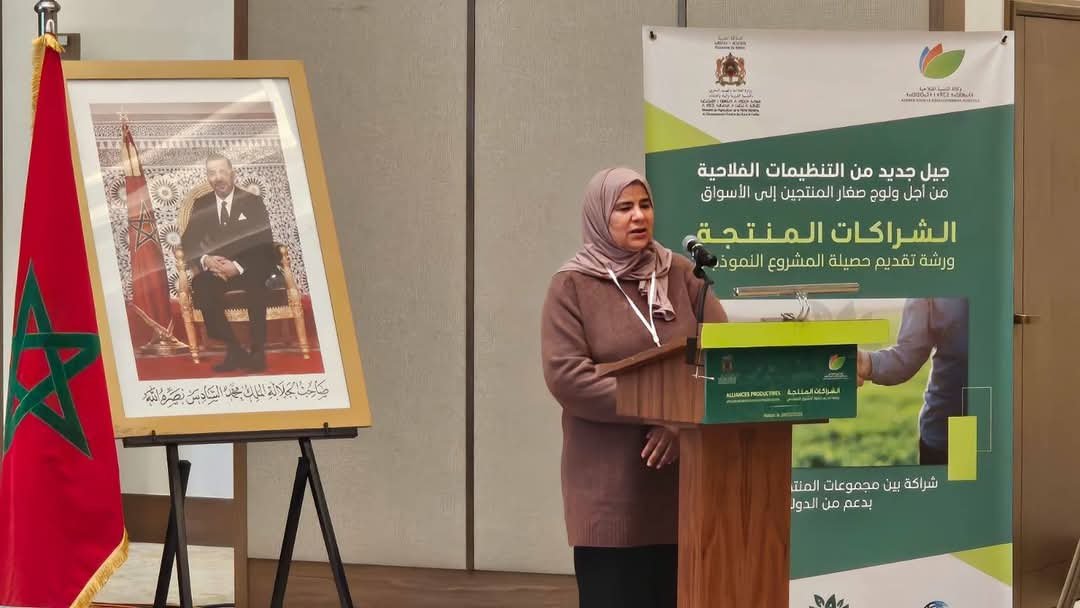
The project includes ten productive partnerships signed between four buyers and sixteen cooperatives, involving more than 700 producers, 40% of whom are women. It has been implemented across various agricultural value chains, including vegetables, fruit trees, organic farming, legumes, cumin, argan, honey, and milk.
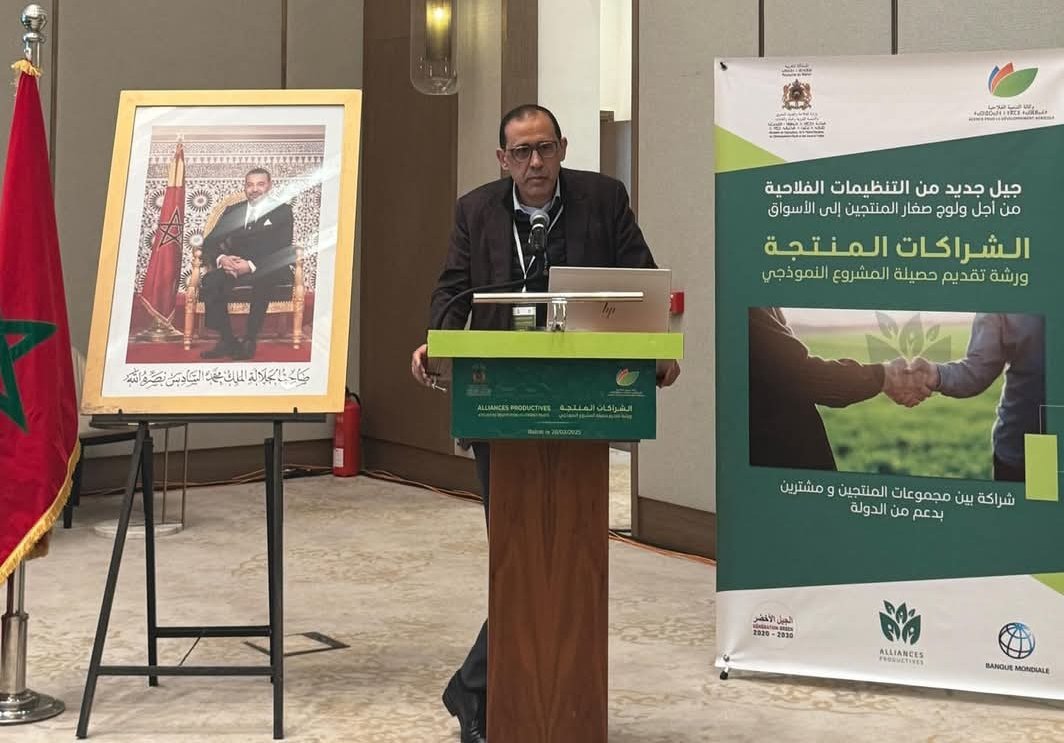
These groups were selected from the regions of Rabat-Salé-Kénitra, Béni Mellal-Khénifra, Marrakesh-Safi, Fès-Meknès, Casablanca-Settat, and the Oriental region.
The workshop was marked by a strong presence of stakeholders, including buyers, professionals, representatives of interprofessional organizations, as well as officials from the central and regional directorates of the Ministry of Agriculture and the World Bank.
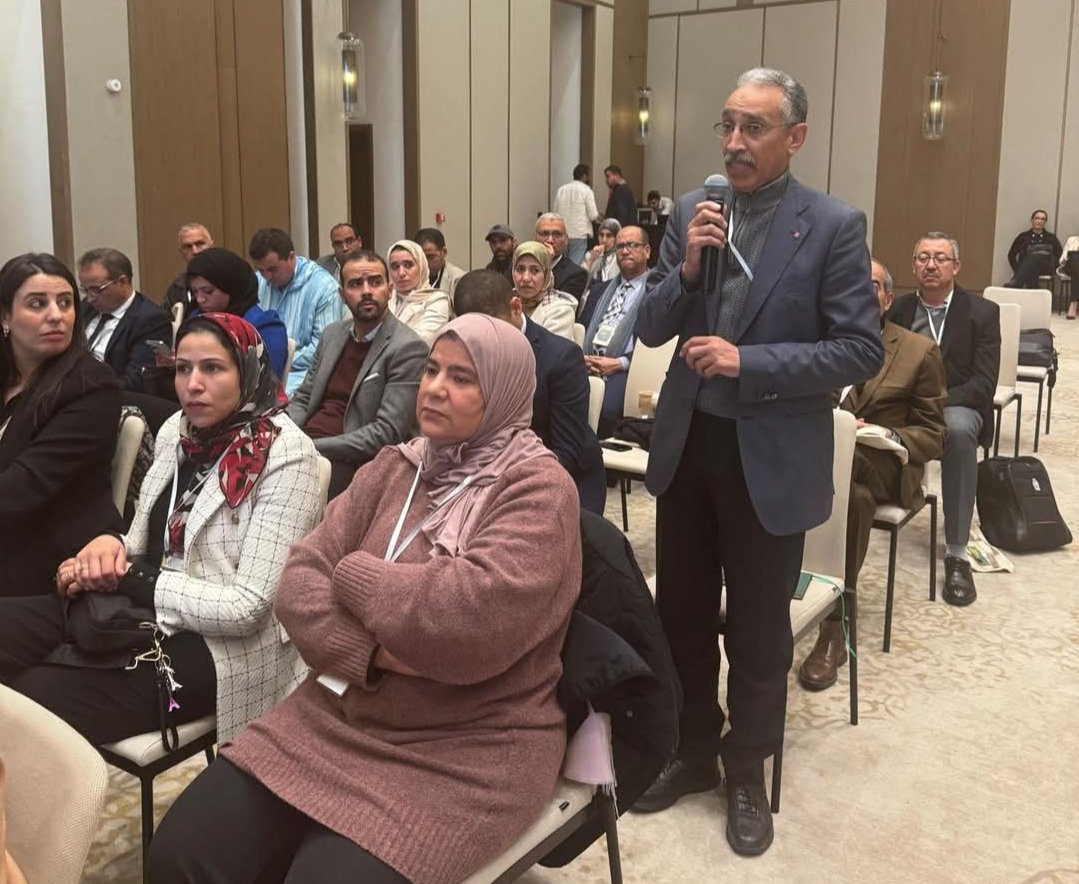
This event provided an opportunity to present the project’s final results and exchange expertise on best practices in the field of productive partnerships.
It is worth noting that the “productive partnerships” approach has proven successful in several Latin American countries, where it has contributed to increasing producers’ incomes by expanding the volume of marketed agricultural products.
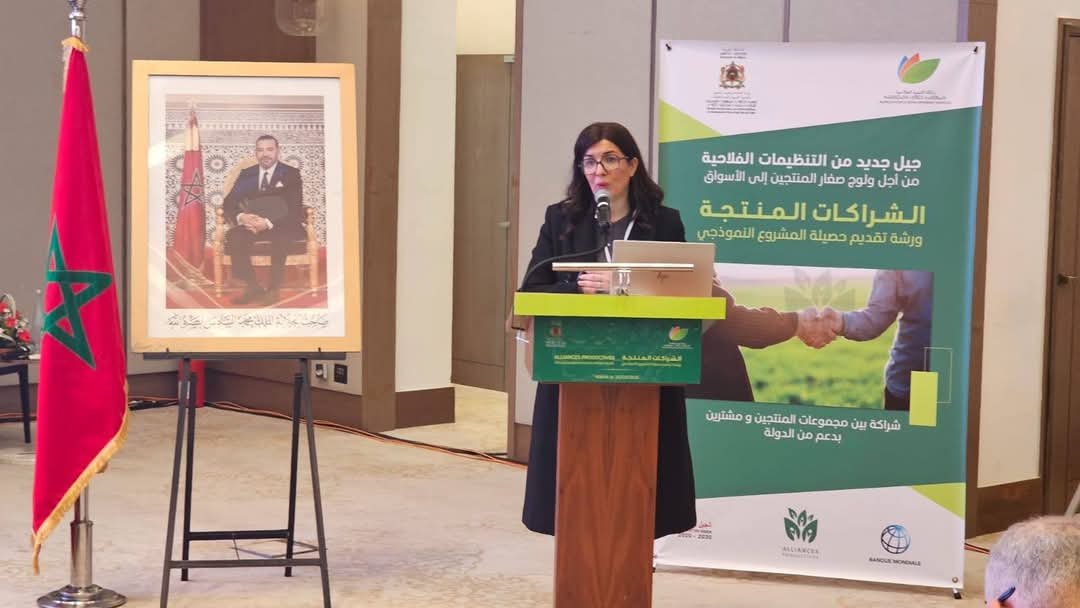
This success aligns with the vision of the new national agricultural strategy and is one of the key drivers behind adopting this new organizational model, which aims to strengthen partnerships between producers and buyers while opening profitable and sustainable markets.
#almouhitalfilahi


